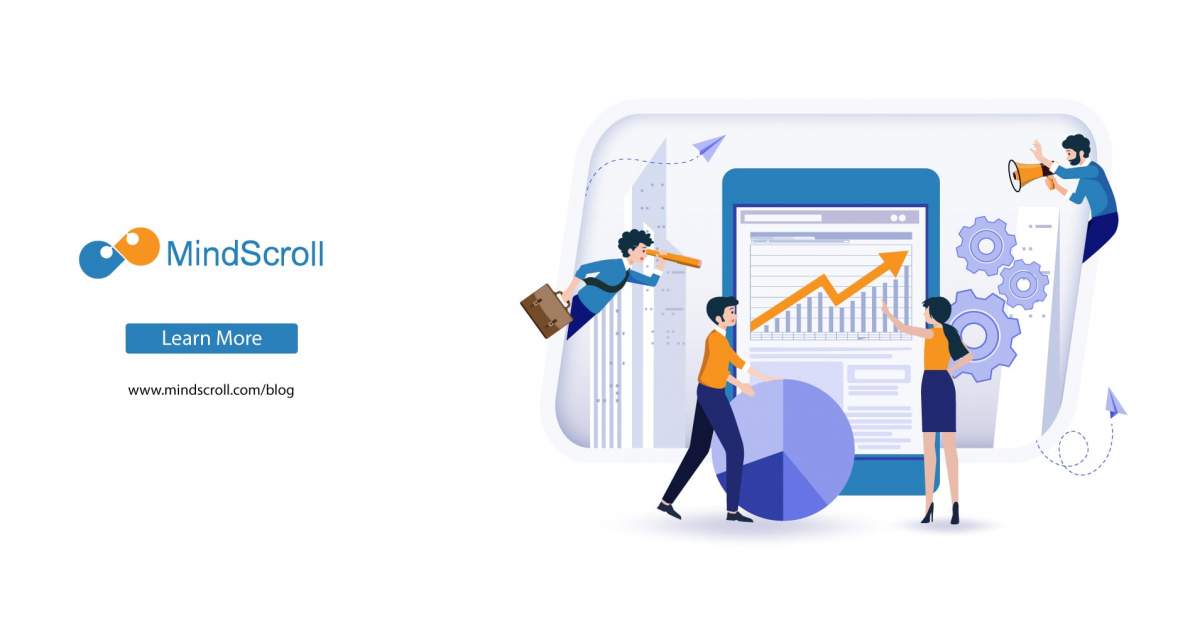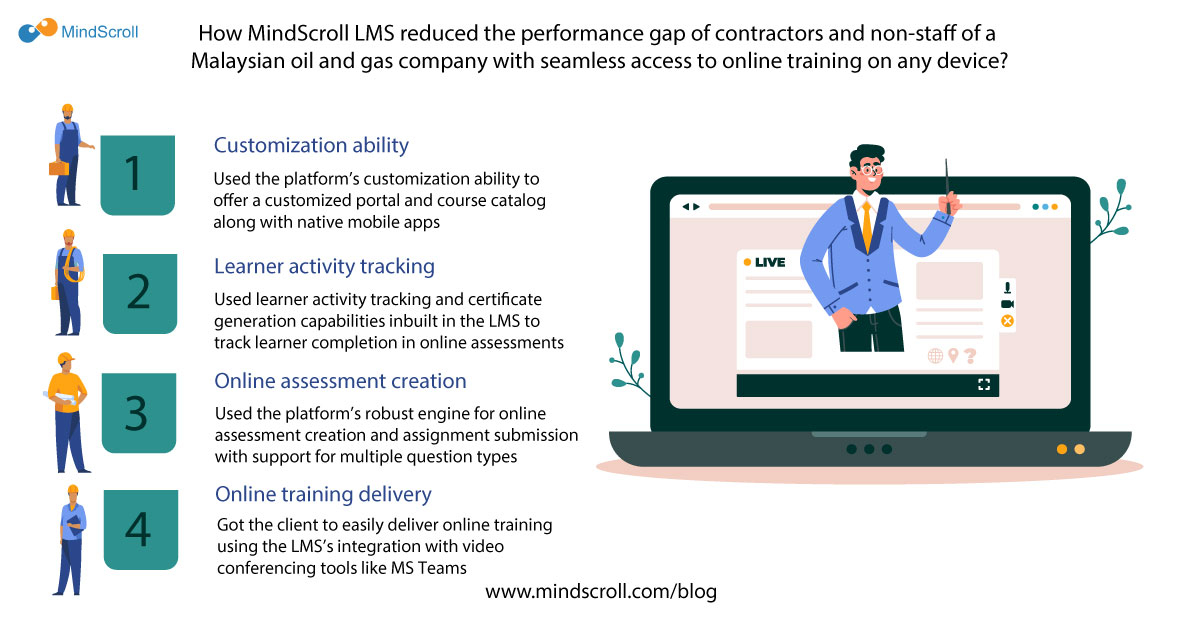Mobiles have replaced technologies in all spheres of human life. From being a simple calling device to a messaging machine, and then a replacement of Personal computers, laptops, cameras, it has made its existence unparalleled.
Major researchers suggest an increase in mobile user base by approximately 26% in last five years with current year figures ending at approximately 4.77 billion. It has been seen that the number of mobiles phones operating in the market is more than the world’s human population.
With easy access to device and internet connections, the dominating, millennial workforce of organizations is shifting on to mobile applications, for fulfilling each of their needs at run-time. As a consequence, all their activities from communicating to banking, browsing to learning is being performed from mobile devices.
Mobile Learning has become the new major change in the education industry. With Generation-Y, replacing the X-Generation, information accessibility in hand for 24x7 is becoming the need of the hour. Mobile Learning Applications have this greatest advantage of letting the user carry and access all information in real-time with just a few swipes, making the whole learning process smooth and hassle-free.
Why Mobile Learning:
Training people for a week or two and then bringing them on the floor does not solve all training requirements.
With changing the profile of the learner, the needs of employees are also evolving, they need specific bite-sized information which solves their on-time problem. Employees can’t retain all information being told to them during training, also carrying and accessing laptops and desktops all time does not fit the demand. Learning apps equips employees with all training content, during all time, resulting in immediate solution and increased productivity.
Real-time reminders and alerts on phones make much more impact compared to sending an e-mail or reminding through web notifications.
i) Emerging needs of the Market
With the changing market scenario and increasing competition every business today is ready to spend a huge part of their training budgets on technology. For keeping their workforce well informed about the market and product, updated information, has become the emergent need of learning industry.
Mobile Learning proves to be beneficial when it comes to the learner oriented training, demanding data in various formats with crisp and precise information that facilitates training to be carried without any uncertainty.
ii) Changing Learner’s Profile
Learners have been growing and developing with the market trends. The young and impatient generation have totally got dependent on mobile phones. They need training to be convenient and happen at their pace, allowing immediate access to all content on their call, making it difficult for classroom trainers to be at service every time. Learning apps have been facilitating learners with all information instantly on-demand also catering to learner’s low attention span.
Benefits of Mobile Learning
1. On-the-go Learning
Your employees need to know and have all information with them at all time, irrespective of their roles and responsibilities. For instance, consider a situation where your Sales Executive is about to close a deal and suddenly a make or break question pops-up from the client, of which your executive has no clue? Or think of a Customer Relationship Executive who does not have all information about the latest updates in your product…
Mobile application serves you best with your entire course content, by leveraging easy access to everything, at all time, from anywhere, also enhancing and activating learner experience, by providing them with instant real-time updates and alerts.
2. Flexibility to Use
Mobile learning eliminates the need for conducting classroom training at a set time and place with the limited number of people. It gives freedom to the user to learn from various available formats on their phones, addressing and supporting all styles, Video, Podcasts, Reading, and Research from the internet. The user also has the advantage for accessing content from various available devices as per their convenience and availability.
3. Collaborative Learning
Y-Generation being a fast and tech-savvy workforce in organizations, don’t prefer to learn and work in isolation. For them engagement, interaction, and socialization are also critical. Mobile learning facilitates the need most conveniently, by encouraging peer to peer interaction and discussion on daily basis, empowering learners to remain connected with all colleagues at all time irrespective of their job location and function.
4. Continuous Learning
Unlike desktops and systems, mobile is one device which is with users all the time. Mobile learning does not happen to be conducted in limited time constraints like classroom training. It allows learners to learn and refer the training material freely for an unlimited time as per their convenience, without even needing the physical presence of a trainer.
5. Engagement and Retention
Mobile learning never lets your learner skip your course and remain in isolation. Its reminders and notifications are always there to bring your learner back to learning. With the advantage of easy access along with bite sized learning nuggets, learners are able to retain more.
Not to forget about its progress tracking and bookmarking feature which helps learner to resume to the same point, left last.
With the rapid proliferation of Mobile devices and increasing development of applications for each activity, e-learning might be running exclusively on mobile learning applications soon.
MindScroll learning application is one such solution helping organizations in bringing their training process on mobile devices. It ensures higher learner engagement with constant upgradations and integrations along with all advanced technology and user-friendly base.
LMS, Learning Management System, Micro Learning, Cloud LMS, Learning Technologies, Mobile Learning, MLearning, Mobile Learning Apps, Learner Engagement, Millennial Workforce, LMS Benefits




